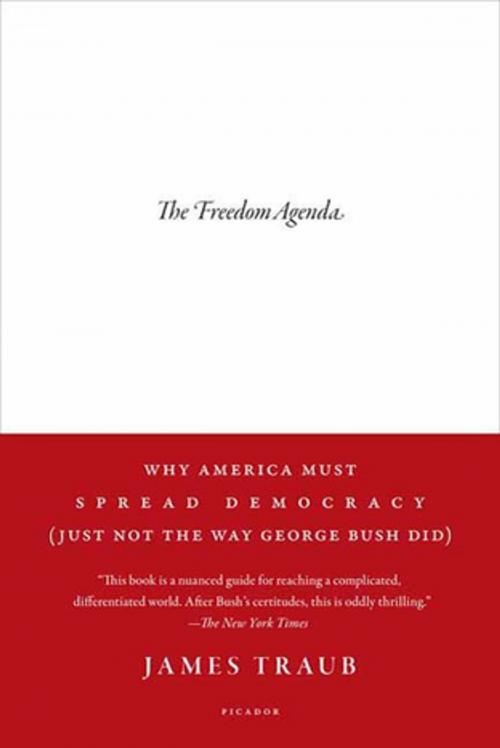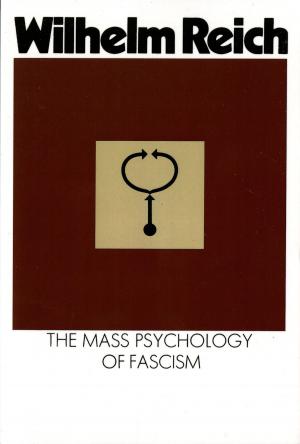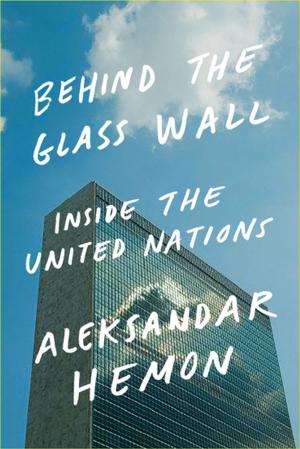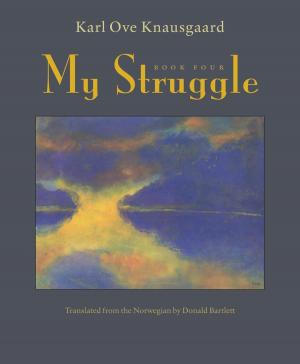The Freedom Agenda
Why America Must Spread Democracy (Just Not the Way George Bush Did)
Nonfiction, Social & Cultural Studies, Political Science, Government, Democracy, International, International Relations| Author: | James Traub | ISBN: | 9781429941846 |
| Publisher: | Farrar, Straus and Giroux | Publication: | October 27, 2009 |
| Imprint: | Farrar, Straus and Giroux | Language: | English |
| Author: | James Traub |
| ISBN: | 9781429941846 |
| Publisher: | Farrar, Straus and Giroux |
| Publication: | October 27, 2009 |
| Imprint: | Farrar, Straus and Giroux |
| Language: | English |
Americans have been trying to shape democracy around the world for more than a century. It is the American mission, our distinctive form of evangelism. But when President Bush declared, in his second inaugural address, that "the survival of liberty in our land increasingly depends on the success of liberty in other lands," he elevated this cause—the "Freedom Agenda," as he called it—to the central theme of American foreign policy. Yet the war in Iraq has proven the folly of seeking to impose American democracy by force. As we leave the Bush era behind, the question arises: What part of our efforts to spread democracy can we rescue from this failure?
The Freedom Agenda traces the history of America's democratic evangelizing. James Traub, a journalist for The New York Times Magazine, describes the rise and fall of the Freedom Agenda during the Bush years, in part through interviews with key administration officials. He offers a richly detailed portrait of the administration's largely failed efforts to bolster democratic forces abroad. In the end, Traub argues that democracy matters—for human rights, for reconciliation among ethnic and religious groups, for political stability and equitable development—but the United States must exercise caution in its efforts to spread it, matching its deeds to its words, both abroad and at home.
Americans have been trying to shape democracy around the world for more than a century. It is the American mission, our distinctive form of evangelism. But when President Bush declared, in his second inaugural address, that "the survival of liberty in our land increasingly depends on the success of liberty in other lands," he elevated this cause—the "Freedom Agenda," as he called it—to the central theme of American foreign policy. Yet the war in Iraq has proven the folly of seeking to impose American democracy by force. As we leave the Bush era behind, the question arises: What part of our efforts to spread democracy can we rescue from this failure?
The Freedom Agenda traces the history of America's democratic evangelizing. James Traub, a journalist for The New York Times Magazine, describes the rise and fall of the Freedom Agenda during the Bush years, in part through interviews with key administration officials. He offers a richly detailed portrait of the administration's largely failed efforts to bolster democratic forces abroad. In the end, Traub argues that democracy matters—for human rights, for reconciliation among ethnic and religious groups, for political stability and equitable development—but the United States must exercise caution in its efforts to spread it, matching its deeds to its words, both abroad and at home.















